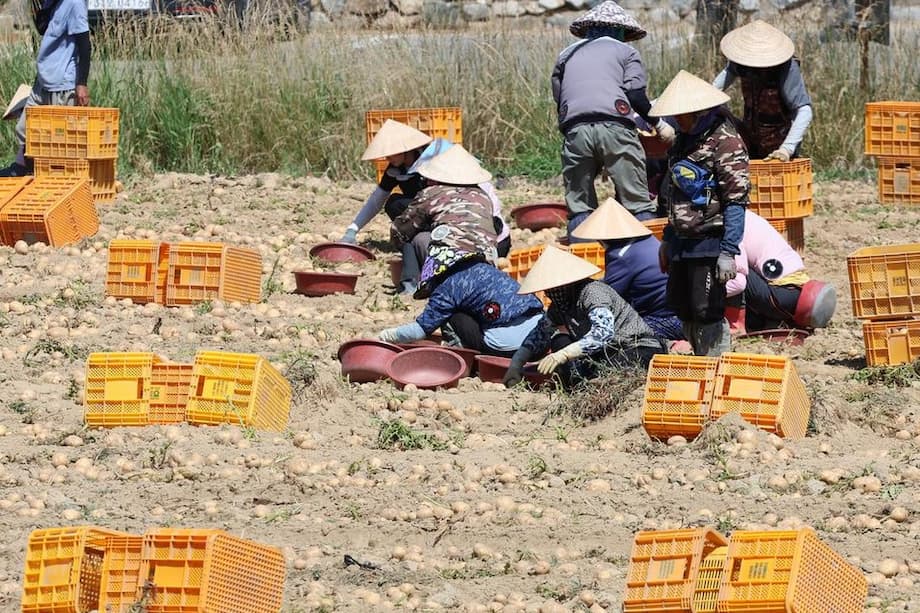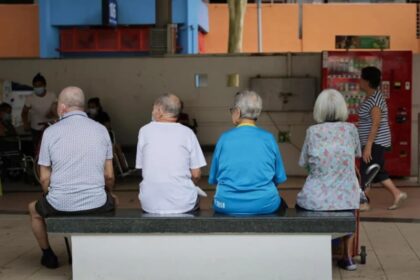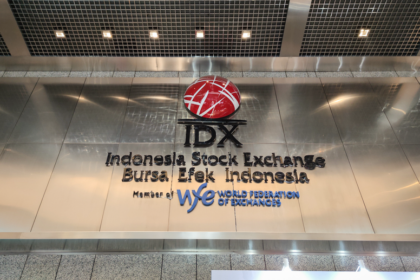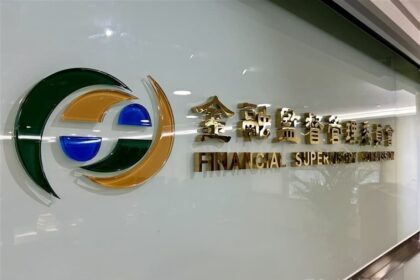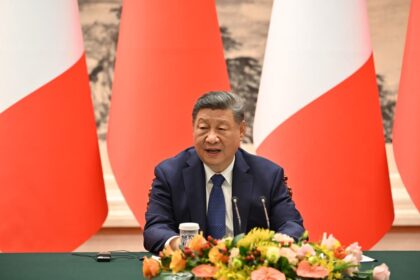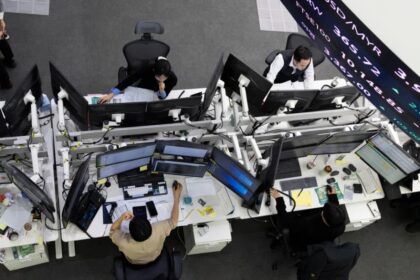South Korea’s Name Campaign: A Step Toward Respect for Migrant Workers
In the southern regions of South Korea, a quiet but significant cultural shift is underway. Local governments, human rights groups, and businesses are joining forces in a campaign to encourage calling migrant workers by their names, rather than using impersonal or disrespectful terms such as “ya” (hey). This movement, while seemingly simple, is part of a broader push to foster respect and inclusion for the country’s growing population of foreign workers and residents from diverse backgrounds.
- South Korea’s Name Campaign: A Step Toward Respect for Migrant Workers
- Why Names Matter: The Roots of the Campaign
- Recent Incidents Highlight the Need for Change
- How the Campaign Is Spreading
- The Broader Context: Migration, Labor, and Social Change in South Korea
- Leadership and Policy: The Role of Government
- Challenges and the Road Ahead
- In Summary
For decades, South Korea has been regarded as one of the world’s most ethnically homogeneous societies. However, demographic changes and economic needs have brought a new wave of multiculturalism, especially in the workplace. As of 2023, 1.19 million people in South Korea—out of a total population of 51 million—were members of so-called “multicultural families,” a term used for families with at least one non-ethnic Korean member. This shift has brought both opportunities and challenges, particularly regarding the treatment and integration of migrant workers.
Why Names Matter: The Roots of the Campaign
The campaign to address migrant workers by name was launched by the Jeollanamdo Contingent Workers Centre, a human rights organization based in South Jeolla Province. Since early 2024, the Centre has worked with local companies and civic groups to promote the practice of using names, often by distributing name stickers for workers’ hard hats and uniforms. The goal is to replace the common practice of using generic pronouns or even profanity when referring to foreign colleagues.
Officials from the Centre emphasize that using someone’s name is a fundamental gesture of respect and recognition. As one representative explained,
“Addressing someone by their name is a starting point for building a relationship based on respect. It helps migrant workers feel more comfortable and can even prevent industrial accidents by improving communication.”
This seemingly small change is seen as a first step toward dismantling deeper patterns of discrimination and exclusion that many migrant workers face in South Korea.
The Power of a Name in Korean Society
In Korean culture, names carry significant weight. The language itself is highly stratified, with different levels of formality and respect built into everyday speech. Using someone’s name—especially in the workplace—signals recognition of their individuality and status. Conversely, addressing someone as “ya” (hey) or by their job title alone can be dismissive or even demeaning, particularly when used toward those perceived as outsiders.
For many migrant workers, being called by their name is not just a matter of courtesy; it is a validation of their identity and humanity in a society where they often feel invisible.
Recent Incidents Highlight the Need for Change
The urgency of the campaign was underscored by a recent viral incident that shocked the nation. In February, a video surfaced showing a Sri Lankan worker at a brick factory in Naju, South Jeolla Province, being tied up with plastic wrap and moved by forklift while his colleagues laughed and mocked him. The 31-year-old victim later revealed that he was rarely called by his name at work, instead being addressed with pronouns or profanity.
The video sparked widespread outrage and prompted South Korea’s president, Lee Jae-myung, to order a government investigation into the treatment of migrant workers. During a Cabinet meeting, President Lee condemned the incident as
“an intolerable violation and a clear human rights infringement,”
and called for urgent measures to prevent such abuses in the future.
Human rights activists and labor experts point out that this was not an isolated case. Migrant workers in South Korea, who often take on low-paying or dangerous jobs that locals avoid, are more than three times as likely to die in industrial accidents as their Korean counterparts, according to a 2024 report. Many attribute this disparity to poor communication, lack of training, and a workplace culture that marginalizes foreign employees.
Activists argue that addressing workers by name is a practical step toward improving safety and morale. As one labor rights advocate put it,
“When you know someone’s name, you are more likely to look out for them. It’s harder to ignore their well-being or treat them as expendable.”
How the Campaign Is Spreading
What began as a local initiative in South Jeolla Province is now gaining traction across southern South Korea and beyond. Five companies in Haenam-gun are actively participating, and hundreds of name tags have been distributed to migrant workers in Jangseong-gun and Muan-gun. Factories in Ulsan, a major industrial city, have also joined the campaign.
South Jeolla Province, which has one of the highest proportions of foreign residents in the country, has seen its foreign population jump by 18.5 percent in 2023 to nearly 87,000. In response, the provincial government has rolled out new policies aimed at supporting migrant workers, including medical clinics for those not covered by the national health insurance program. These efforts are designed to address both practical needs and the broader goal of social integration.
Corporate and Community Involvement
The campaign’s success depends on buy-in from both employers and local communities. Companies are encouraged to adopt the name-tag practice and to provide cultural sensitivity training for their staff. Community groups and NGOs are also playing a role by organizing workshops and public awareness events.
One factory manager in Haenam-gun described the impact:
“At first, some workers were skeptical. But after a few weeks, you could see the atmosphere change. People started greeting each other by name, and there was less tension on the floor.”
The Broader Context: Migration, Labor, and Social Change in South Korea
South Korea’s reliance on migrant labor has grown steadily over the past two decades. With a rapidly aging population and a shrinking domestic workforce, the country has turned to foreign workers to fill jobs in manufacturing, agriculture, and services—sectors often shunned by younger Koreans. As of 2023, hundreds of thousands of migrants, mostly from Southeast Asia and China, work in South Korea under various visa programs.
Despite their contributions, migrant workers have long faced legal and social barriers. Until recently, they had limited rights to organize or join labor unions. In 2015, the Ministry of Employment and Labor registered the country’s first migrant worker trade union, marking a milestone in labor rights. However, discrimination, wage theft, and unsafe working conditions remain persistent problems.
South Korea’s government has periodically introduced reforms to improve the situation, but progress has been slow. The recent forklift incident and the subsequent public outcry have renewed calls for stronger protections and greater respect for foreign workers.
Xenophobia and Political Tensions
The campaign for respectful address comes at a time of heightened social and political tensions around migration and diversity. In the run-up to the 2025 presidential election, anti-foreigner sentiment has been stoked by some political groups, particularly targeting Chinese nationals and ethnic Korean-Chinese residents. Protests and hate speech have left many foreign residents feeling anxious and unwelcome.
One Chinese restaurant owner in Seoul, speaking anonymously to the South China Morning Post, described the atmosphere:
“We don’t want to speak about it. As a foreign national, I could be targeted.”
Another expat recounted being shoved on the subway for speaking Mandarin. Such incidents highlight the challenges of building a truly inclusive society.
Leadership and Policy: The Role of Government
South Korea’s new president, Lee Jae-myung, has a personal history that resonates with many working-class and marginalized citizens. Having grown up in poverty and worked in factories as a teenager, Lee has positioned himself as a champion of social welfare and reform. His administration has pledged to address inequality and improve conditions for vulnerable groups, including migrant workers.
Following the forklift incident, President Lee ordered a comprehensive review of working conditions for migrants and minorities, signaling a willingness to take concrete action. The Ministry of Labor has launched investigations into abusive workplaces and is considering new regulations to protect foreign employees.
However, political polarization remains a challenge. The recent snap presidential election, triggered by the impeachment of former President Yoon Suk Yeol, has left the country deeply divided. While both major candidates promised national unity, their approaches to migration and diversity differ, reflecting broader debates about South Korea’s identity and future direction.
International Image and Economic Imperatives
South Korea’s treatment of migrant workers is not just a domestic issue; it also affects the country’s international reputation. As a major exporter and host to global companies, South Korea faces scrutiny from international human rights organizations and trading partners. Ensuring fair and respectful treatment of all workers is increasingly seen as essential for maintaining economic competitiveness and diplomatic credibility.
Challenges and the Road Ahead
While the name campaign is a positive step, experts caution that it is only the beginning. Deep-seated attitudes and structural inequalities will require sustained effort to overcome. Language barriers, lack of legal protections, and social isolation continue to affect many migrant workers.
Advocates are calling for comprehensive reforms, including:
- Stronger enforcement of labor laws and anti-discrimination policies
- Expanded access to healthcare, education, and social services for migrants
- Greater representation of migrant voices in policy-making
- Public education campaigns to combat xenophobia and promote multicultural understanding
As South Korea’s society becomes more diverse, the ability to embrace and integrate newcomers will be a key test of its resilience and values. The campaign to call migrant workers by their names is a small but meaningful step in that direction.
In Summary
- South Korea is expanding a campaign to encourage calling migrant workers by their names, aiming to foster respect and inclusion.
- The initiative began in South Jeolla Province and is spreading to other regions and industries.
- Recent incidents of abuse, including a viral video of a Sri Lankan worker being mocked, have highlighted the need for cultural change.
- President Lee Jae-myung and government agencies are responding with investigations and new policies to protect migrant workers.
- The campaign is part of broader efforts to address discrimination, improve workplace safety, and adapt to a more multicultural society.
- Challenges remain, including xenophobia, legal barriers, and social integration, but advocates see the name campaign as a vital first step.


